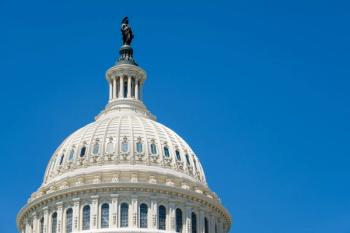
A majority of nurses say they are putting the job before their health, according to the survey by IntelyCare. Nurses who have shifted to per diem roles said they are happy with the move.

A majority of nurses say they are putting the job before their health, according to the survey by IntelyCare. Nurses who have shifted to per diem roles said they are happy with the move.

Providers must engage patients outside of appointments, Linnert said in an interview with Chief Healthcare Executive. Health systems can use their data to connect with patients.

A new survey by Panda Health found most organizations spend months on finding digital solutions, but still aren’t sure they made the right choice. And many hospitals don’t have an overall vision.

The threat is real, says Heath Renfrow, chief information security officer at Conversant Group. Healthcare organizations generally aren’t where they need to be when it comes to cybersecurity.

In other news, Baptist Health System chooses a new hospital president, Providence announces a new top digital officer, and more leaders enter new roles.

The group is relatively new but has targeted the health sector, the agency says. Scores of hospitals have been hit by ransomware and other cyberattacks.

The National Academy for State Health Policy has unveiled a “Hospital Cost Tool.” The group says it offers more information on hospital costs, expenses and profits.

One in six practices were hit by a cyberattack in 2021, according to the Medical Group Management Association.

Hospitals need to do more than try to protect patient information from cyberattacks. Andrew Mahler of CynergisTek explains why leaders must take a closer look at privacy policies.

As we conclude our series on cybersecurity in healthcare, several experts offer advice on protecting systems and patients.

As we continue our series on cybersecurity, John Riggi, the American Hospital Association’s top expert, explains how disruptive breaches can be. And he offers advice for hospitals to fortify their defenses.

The Department of Health and Human Services is asking for comments about assessing fines or other remedies for potential violations. The agency noted the rise of cybersecurity threats involving patient data.

As Chief Healthcare Executive continues our series on cybersecurity in healthcare, we look at the risk a breach poses to patients. Experts say hospitals must plan for providing care after an attack.

Our cybersecurity series continues with a look at what's happening in Congress. A Senate bill would authorize more cybersecurity training for hospitals. And a new law requires hospitals to report attacks and ransom payments more quickly.

This week, Chief Healthcare Executive is taking a closer look at cybersecurity in healthcare. Today, we look at the risks for smaller hospitals, which have fewer resources to combat attacks.

As Chief Healthcare Executive continues its series on cybersecurity, we look at the Fisher-Titus system in Ohio. The organization offers useful lessons in how smaller providers can improve their security.

This week, Chief Healthcare Executive is publishing a series of stories on cybersecurity and what healthcare organizations should be doing to protect themselves. Today, we look at why hospitals should expect a breach.

More than 100 breaches have been reported to the federal government since Jan. 1, and some have affected hundreds of thousands. As part of our series on cybersecurity this week, we look at the largest attacks in the first three months of the year.

Third-party patient financing has a vital role to play in providing patients with more options, and in ensuring that cash-strapped hospitals recoup revenue.

CoxHealth gets a new CEO, Scripps Health selects a new chief financial officer, and more leaders are announced.

Doctors and executives see the value in the practice, but some say there are issues with workflows and reimbursement, a new survey finds.

The vast majority of doctors are using telehealth and see the value for patients. Some express concern about ensuring all patients can take advantage of it.

People want more convenience, and healthcare organizations have to respond if they want to avoid losing patients.

The Cleveland Clinic and Amwell have teamed up to offer patients, employers and health plans the chance to check a diagnosis remotely. Frank McGillin, CEO, says there’s a clear need and a substantial market.

In other news, University Hospital in New Jersey chooses an interim CEO, and an HCA Healthcare hospital in Virginia selects a COO.